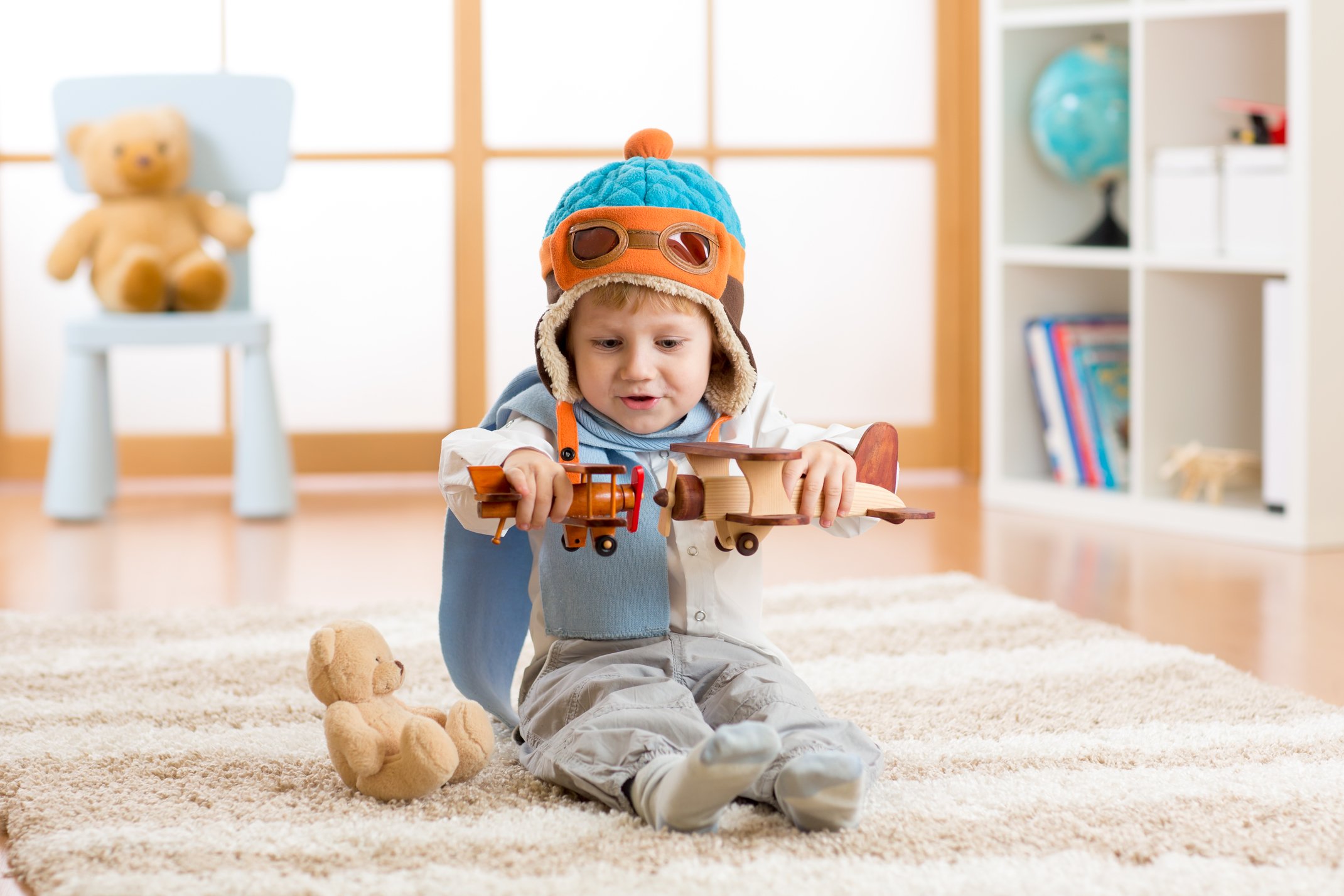The right games and interaction for your toddler should be fun, natural, and promote bonding. Creative and imaginative games are critical elements for toddlers since they promote thinking “out of the box”, problem-solving abilities, resourcefulness, and build increasing confidence.
Specialty stores, catalogs, and websites are full of stimulating games and toys for toddlers. However, you don’t need to spend a fortune in toys. With a little preparation and very few dollars, you can create learning opportunities with everyday items and situations.
It’s also reassuring to know that many games can be played spontaneously any time you have 15 or 20 minutes of free time. Here are some ideas that you can use, especially with young toddlers between 12 and 24 months of age. These games are loads of fun, easy, and inexpensive. Your child won’t even know it, but as they play, they’ll be learning valuable skills and building up their creativity capabilities.
Cognitive skill games
1. Baby safari for building fine motor and classification skills
Gather two containers of different sizes. Fill one with balls and add in a few animal figures. Have your toddler separate the animals and put them in the second container. As they grow and become more mature, you can raise the challenge by having them classify the animals by type, color, or size.
2. Zookeeper for building imagination and fine motor skills
With home-made or dime-store animal masks, cut out the mouth area and place it over any type of container (a tissue box is perfect). Your toddler will love “feeding” the zoo animals with crackers, cereal, or uncooked rice or pasta. As your little one becomes more skilled, you can add to the fun and learning by using scoops and spoons, or by giving more complex instructions such as “Give some pasta to the lion”, “Now give some crackers to the horse”.
3. Worm hunt for building imagination and fine motor skills
Fill a large bowl with sand, uncooked rice or pasta, and add in a few “worms” (lightly cooked pasta). Have your child search for and separate the worms. To make it more fun, you can add green food coloring to the pasta.
Games for physical skills
1. Toddler train for coordination, auditory processing, and memory
Draw a train track on a Kraft Paper-covered floor and have your little one move up and down the “tracks” while they listen to music. Add treasures, such as snacks or toys, to make the game even more fun! Once they have the hang of the game, add music so they can start and stop, speed up and slow down according to the rhythm.
2. Trailblazer obstacle course for coordination, balance, and memory
An obstacle course or maze is entertaining and easy to create in any home. You can build it in the bedroom, hallway, kitchen, or backyard. Just add toys, tunnels, chairs, foot ladders, and pillows and you’re ready to go. Tip: Large cardboard boxes make ideal “tunnels” for little ones and cost nothing.
3. Simon says for auditory skills and musical appreciation
This traditional game is for older kids, but you can start your toddler out one step at a time almost anywhere you have a little space and some music (a cell phone is perfect). Play some music and add commands like “Simon says: move your shoulders”, “Simon says: Do the twist”, “Simon says: Raise your hands”. It’s an easy and fun game to play alone or with siblings.
Social skills games
- Emoji cards for empathy and pro-social skills
Home-made flashcards with different emotions or emojis are perfect for quiet times. Take turns with your child pulling a random flashcard and imitating the expressions you got. It’s even more fun if parents, siblings, and other friends join in!
2. Pass the goodies for sharing, imagination, and pro-social skills
This is an easy game that can be played at home, in waiting rooms, or anytime there’s a little downtime. All you need is a bag of “goodies”, real or pretend. Have your child share her stash of goodies with others in the room. For an older toddler, add complexity, such as: “Take the cracker from the bear and give it to Grandma”, “Daddy is very hungry, give him lots of crackers”.
Healthy social, physical, and emotional development is fostered by activities that provide time and space to play, imagine, and interact. These games are simple and inexpensive and it’s easy to add your own twists or variations or use them as inspiration for other games. Regardless of one’s budget, size, or spare time, virtually every home has myriad articles and situations that can be converted into learning aids and stimulating play for your little one.
Notes:
*All plastic toys or pieces must be larger than 1.5 inches in diameter to avoid choking hazards in smaller children. Pasta should be lightly cooked to avoid choking or injuries.








